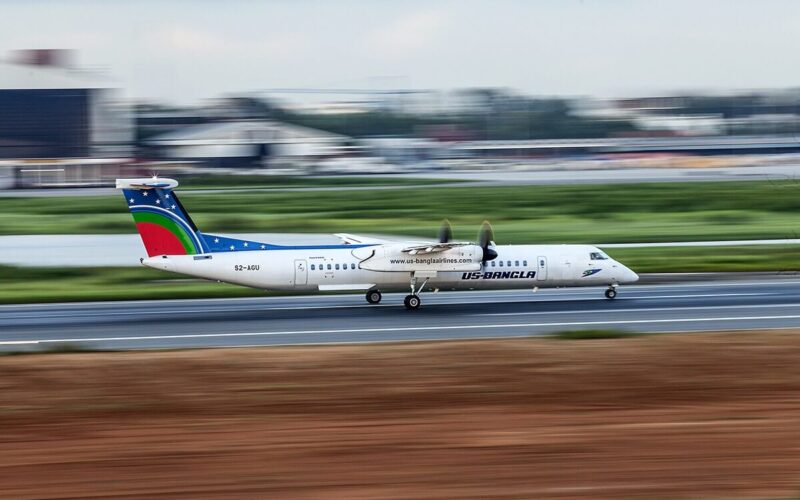The pilot of a US-Bangla Airlines plane that crashed upon landing in Kathmandu last March “seemed to have an emotional breakdown”, Nepalese investigators state. Based on data retrieved from the cockpit voice recorder, the probe suggests the captain was in a disturbed mental state due to “stress” during the flight, a factor that contributed to the crash.
Investigators continue to maintain that the captain of the ill-fated US-Bangla Airlines flight BS211 “was under stress and emotionally disturbed” during the flight, ranting to his first officer and smoking in the cockpit during the final approach. Findings also describe the captain being engaged in an “unnecessary” personal conversation in the cockpit as he felt that the female colleague questioned his reputation as a good flight instructor.
The Stress Factor
In August 2018, a draft of the investigation report compiled by the Nepali government-appointed investigation commission and viewed by Reuters, already indicated that the captain, Abid Sultan, aged 52, had been “extremely upset and hurt” by remarks made by a female colleague” who questioned his reputation as an instructor for the airline.
Due to this stress, the captain apparently began showing erratic behavior: “The captain was ‘crying and sneezing’ on several occasions during the flight,” the draft said, citing recorded conversation between the cockpit and traffic controllers.
The latest and final report also focuses on the captain’s emotional state throughout the flight, focusing on the “stress” experienced by the captain. “The effect of stress was evident with the fact that he was irritable, tensed, moody, and aggressive at various times. He also seemed to be fatigued and tired due to lack of sleep the previous night as well as due to the stress he was harboring,” the document reads.
Based on CVR recordings, as originally described in the draft report, investigators emphasize that the captain “was engaged in lengthy one-way conversation with the first officer” throughout the flight and “made multiple unnecessary statements and comments against another colleague in the company who had questioned his reputation as an instructor in the company.”
Another point that is raised is that the captain attempted to coach the first officer, who was operating this flight for “the very first time”; a task that may have distracted him from following the necessary procedures, the report implies.
However, the statements made in the document regarding the captain’s character do seem, at times, rather speculative. According to investigators, the CVR data reportedly showed that the captain “was talking almost non-stop throughout the duration of flight” and that the first officer remained a “patient listener most of the times”.
Moreover, the inquiry states, the captain reportedly “did try to teach” the first officer on various aspects of flight and operational environment, but at times seemed to be trying to “impress FO about his skill and capability.”
Even the fact that the captain allegedly had planned to resign from the company, is illustrated in the findings with the idea that his state of mind might have been affected by the financial insecurity he potentially faced.
The inquiry goes as far as to suggest the captain had an “emotional breakdown” during the fatal flight. “At times the Captain even seemed to have emotional breakdown as revealed in the CVR. This stress might have led him to smoke in the cockpit during the flight and this clearly is against the Company Standard Operating procedure. This state of mind with high degree of stress and emotional state might have led him to all the procedural lapses,” the report reads.
Finally, the inquiry revealed that the captain had retired from the Bangladesihi Air Force in 1993 after 10 years of duty because he suffered from depression; he was later declared fit to fly civilian aircraft. The captain’s history of depression, as well as his smoking habit, had not been reported in routine annual medical evaluations, the probe states. With the findings, pilot mental health has again come under the spotlight.
On March 12, 2018, US-Bangla Airlines Flight BS211 carrying 71 people from Dhaka, Bangladesh, crashed on impact with the runway at Kathmandu Tribhuvan International Airport (KTM), killing 51.
For the rundown of events that unfolded in the cockpit, please read here:

